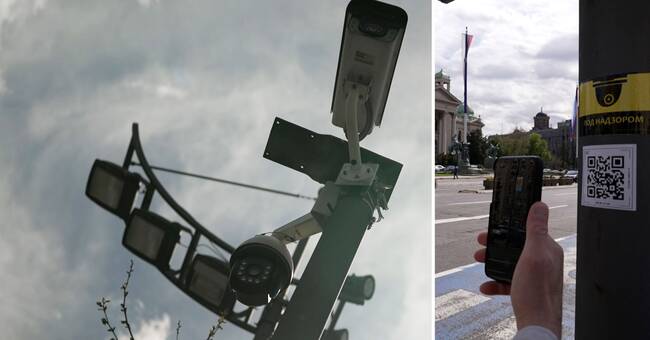Face recognition makes it possible to quickly find a suspect in a huge image material.
In London, the police are automatically warned if a wanted person shows up in front of the surveillance cameras.
In Belgrade, thousands of cameras were purchased after a fatal accident, in which the suspect who fled the country could eventually be arrested with the help of facial recognition in China.
- But, the organized crime we have, is not solved with surveillance cameras.
It is about the rulers wanting more power.
People are reluctant to go out and demonstrate if they feel monitored, says Filip Milošević, who through the Share Foundation runs a campaign against camera surveillance in the city.
"Should in principle be prohibited"
There, facial recognition should not yet be switched on, but politicians want to change the law so that it will be possible.
Within the EU, regulation is underway.
The Commission recently made proposals that address, among other things, biometric identification through face, voice or movement recognition.
- It should in principle be prohibited, except in a limited number of exceptions where police authorities could use it to look for a terrorist or a missing child, says Margrethe Vestager, Vice President of the European Commission responsible for digitization issues.
Sweden is investigating conditions
Critics who fear a surveillance society believe that regulation does not go far enough.
- It's full of loopholes.
It is only the use of the police that they address.
Other public organizations such as a school or a library are not affected.
Not companies either, says Ella Jakubowska at the European data rights organization EDRI.
- I really do not agree that it should be a free card, it is a ban with strictly limited exceptions, Vestager counters, and points out that it is a fundamental freedom to be able to pass a square without being recognized by cameras.
The Swedish government, which recently appointed an inquiry to review the police's preconditions for using, among other things, facial recognition, justifies this by saying that "biometrics and biometric data can be very powerful tools for identifying and prosecuting people who have committed crimes".

